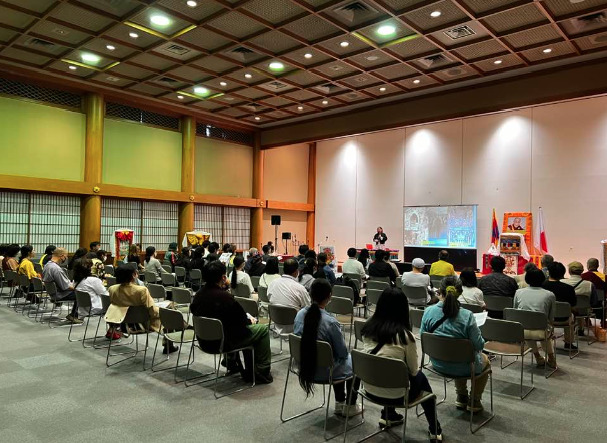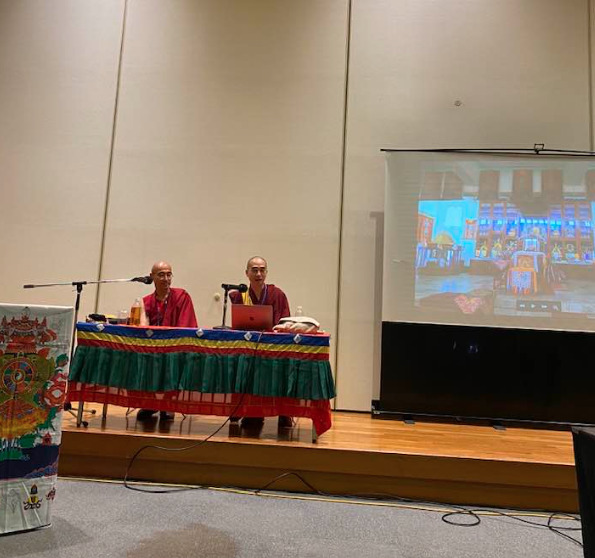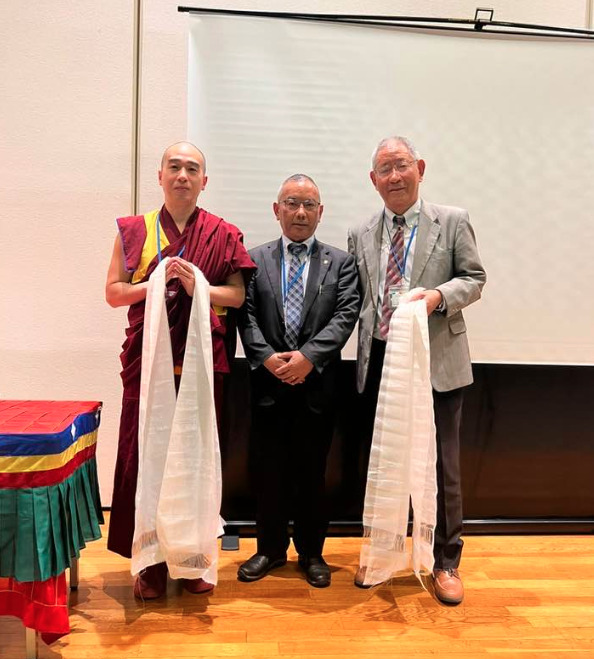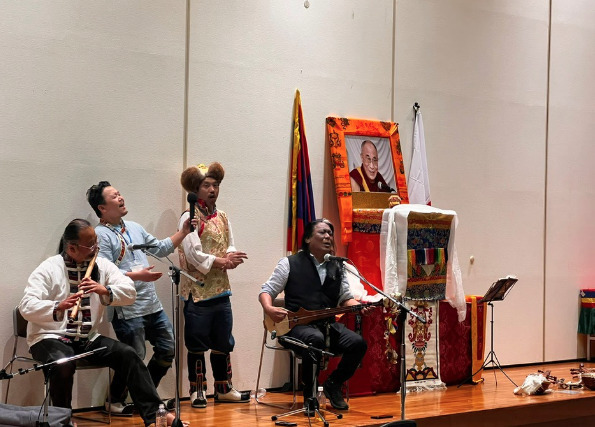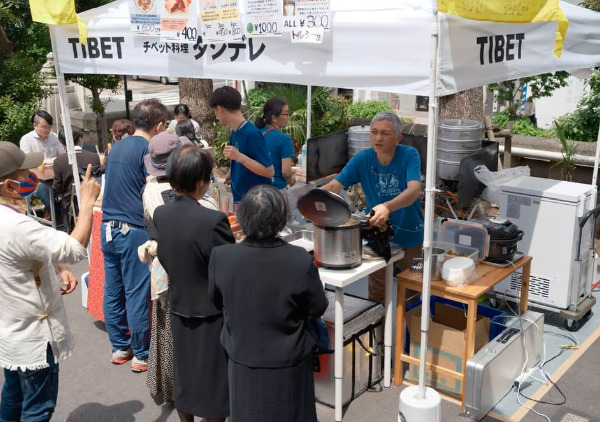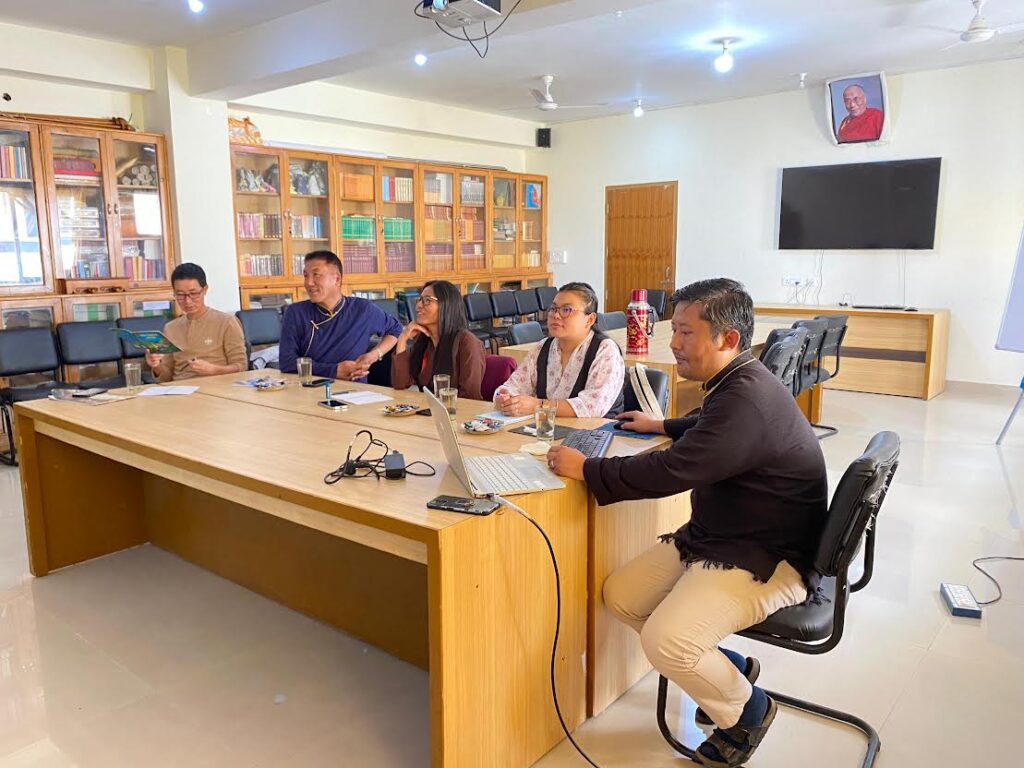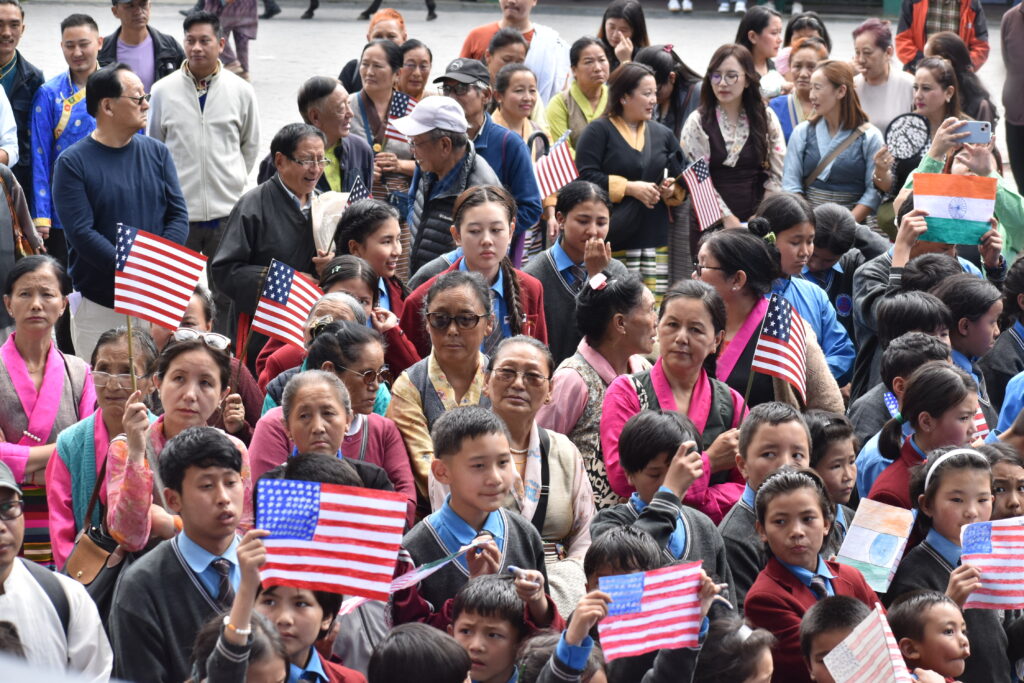Tokyo: Tibet House Japan organised a two-day Tibet festival from 3-4 May at Tsukiji Hongwanji Temple in Tokyo. The festival coincides with the Japanese golden week holiday enabling many Japanese friends, supporters, and tourists to enjoy and experience Tibetan culture, history, and spiritualism.
Representative Dr Tsewang Gyalpo Arya of the Liaison Office of His Holiness the Dalai Lama for Japan and East Asia, in his inaugural remarks, welcomed and thanked the audience for their participation and interest in the Tibet issue. He expressed happiness that the festival could happen this year and that too at Hongwanji Temple. Because the head Temple, Nishi Hongwanji in Kyoto, had a good historical relationship with Tibet since the 13th Dalai Lama’s times, and the current 14th H.H. the Dalai Lama’s elder brother Taktser Rinpoche stayed at the Tsukiji Hongwanji Temple in the early 1950s. Through this festival the ancient ties of Tibet and Japan have come alive and restored, he said.
Rev. Abe Taikyo of the Tsukiji Hongwangji Temple greeted the audience and expressed his joy to have the Tibet festival at the temple premises. He was also happy to see the old historical relationship between the Temple and the Tibetans coming alive.
The festival featured a series of talks on Tibetan history, Buddhism, meditation, and spiritual experience. Prof. Ishihama Yumiko of Waseda University delivered an opening talk with a power-point presentation on the historical relationship between the Hongwanji Temple and Tibet. She elaborated on Aoki Bunkyo and Tada Tokan’s visit to Tibet.
Kunchok Sither and Rev. Itano Koei ak Tenzin Khentse talked about Buddhism in general and Tibetan Buddhism in particular. Geshe Sonam Gyaltsen Gonta of Potala College led prayers and teachings on meditation. Rev. Itano Koei aka Tenzin Khentse and Rev. Okuda Tsuyoshi aka Khenpo Kunga Tenpa, two Japanese Tibetan monks, who studied in India, shared their experiences as Tibetan monks. Watanabe Ichie sensei, a well-known writer, talked about her association with the Tibetans and her travel to Tibet and the pilgrimage to Mount Kailash. The talks were well received with questions from the audience.
A Grammy award nominee, Tenzin Chogyal, and his party: Terahara Taro, Ikeda Ayako, and others, and Tibetan artists Tenzin Kunsang and Genyen Tenzin entertained the visitors with Tibetan songs and mixed instruments of Tibetan dranyan, Indian bansuri, tabla, and guitar.
Karma Dhondup of the Nomad Arts, who made a series of short documents on Tibetans in Japan, presented an exhibition of his photographs on the Tibetan diaspora. KIKU, an NPO supporting Tibetan education through a sponsorship program, held a desk to inform the visitors of their activities.
The festival attracted many Japanese and foreign tourists. The venue was fully adorned with Tibetan ambience with the five coloured Lungta prayer flags, thangkas, picture of Potala Palace, people in traditional costumes and food stalls to delight the visitors with Tibetan cuisine.
The festival ended with a Tibetan gorshe, a group circle dance, and a thank you note by Representative Arya. He thanked Tsukiji Hongwanji Temple for their support and goodwill and thanked all the volunteers who contributed big and small to the Tibet festival.
The festival provided a good opportunity for the Japanese and Tibetans to share and enjoy the culture of Tibet, Tibetan cuisine, traditional music, and dance. It also gave the visitors information and ideas about the struggle and challenges of the Tibetan community.
The Tibetan community in Japan and the Save Tibet Network worked closely with the Tibet House and supported the festival. Kitazawa Anri of the Save Tibet Network moderated the two-day events.
-Report submitted by the Office of Tibet, Japan


